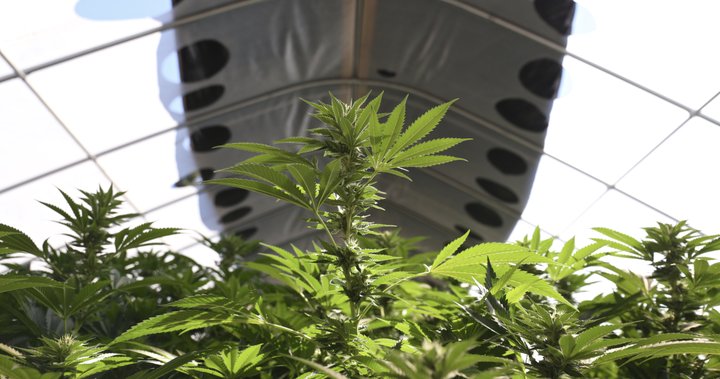[Ed. note: The following editorial piece was written by Tiffany Devitt and Jim Araby and first appeared in CalMatters.]
# # #

Photo by Andrew Goff
It stinks to be in the cannabis industry in California right now.
We aren’t just speaking metaphorically either. Four years after cannabis advocates and workers celebrated the opening of the largest legal recreational marijuana market in the world, misguided licensing and taxation policies have created an emporium of dysfunction.
Today, hundreds of California cannabis farmers are choosing to let crops rot in the fields rather than risk a money-losing harvest or returning to the illicit market.
Astonishingly, amid this crisis, California’s Department of Tax and Fee Administration recently announced yet another tax increase. On Jan. 1, 2022, the state’s cannabis cultivation tax will increase by almost 5%, raising it to a whopping $161 per pound.
Let’s compare how much higher the cultivation tax is for cannabis than, say, wine grapes, almonds or raisins. Actually, no such comparison is possible because no other agricultural product has a cultivation tax. On the contrary, other agricultural industries are supported by federal crop subsidies to protect family farms from market fluctuations that could put their homes and livelihoods at risk.
The state cultivation tax is but one of many cannabis taxes imposed by state and local governments. The industry is also subject to local cultivation, manufacturing, processing, distribution and retail taxes, as well as local “road” taxes that are imposed merely for driving through a jurisdiction. Next a state excise tax is applied that’s approximately 27% of the wholesale price, and, lastly, a state sales and use tax.
While the aggregation of these taxes contributes to the overall dysfunction, the cultivation tax is, by far, the most problematic. For starters, it is levied at the very beginning of the supply chain. So, every one of those later taxes also applies to the cultivation tax. In other words, our taxes are taxed again and again and again, compounding each time.
To make matters even worse, the cultivation tax is a flat tax, meaning it’s not proportional to the sales price. Given the recent precipitous drop in the price per pound for cannabis, this matters. Last year, the cultivation tax was 10% to 20% of bulk material costs. Today it’s as high as 80%. Furthermore, it is applied essentially at the time of harvest regardless of whether materials are sold.
This is devastating for farmers, but they’re not the only ones who are hurting. Cannabis workers across the industry are impacted. Hundreds of jobs have been lost due to excessively high taxes and even more will disappear in the coming year as companies are forced to further cut costs, reduce operations or go out of business altogether.
Labor unions have fought for better wages, reasonable hours and safer working conditions for cannabis workers. Despite strong organizational success, there will be little unions can do to improve protections in this relatively young industry so long as it faces state-imposed financial hardships.
And gradually ceding the industry to lavishly capitalized, out-of-state companies will mean that workers may never benefit from California’s strong labor policies, while cannabis workers, who are pushed back into the unregulated market will be even worse off. Working conditions in these illegal endeavors often resemble indentured servitude with dangerous conditions, low pay and no health benefits.
By perpetuating tragically wrong-headed tax policies, the state’s inaction is costing jobs, strengthening an already dominant illicit market and all but ensuring that one of California’s great heritage industries will be non-competitive when federal legalization occurs.
Fixing the problem is simple: Reform or repeal the state cannabis framework, beginning with the elimination of the cultivation tax. With the state projecting a whopping $31 billion surplus in 2022, it can well afford to forgo the cultivation tax to facilitate what should be a vibrant, global-leader industry. Until then, Sacramento’s misguided tax policy will continue to compound, hurting cannabis cultivators, consumers and workers alike.
# # #
Tiffany Devitt is chief of Government Affairs at CannaCraft, a California cannabis company.
Jim Araby is director of Strategic Campaigns for UFCW Local 5, a 30,000-member union in the Bay Area.
CLICK TO MANAGE